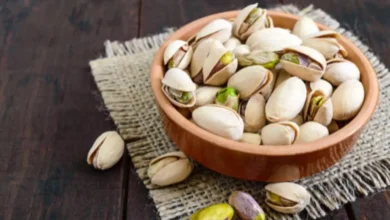“Swallowing the Sun”: An ode to the unsung warriors of the Indian liberation movement
Stories of bravery and resistance during the Indian Independence struggle are still abounding. They continue to arrive from all throughout the nation. Swallowing the Sun (Aleph), written by former diplomat Lakshmi Murdeshwar Puri, is the most recent installment in the historical fiction series set during that period. Publisher David Davidar describes it as “an epic feat of storytelling and remembering.”

Lakshmi served as UN WOMEN’s deputy executive director and assistant secretary-general before joining the organization, which was the first worldwide organization to advance gender equality. She has also represented India as an ambassador to nations like Bosnia & Herzegovina and Hungary.
Bringing up the little-known
The story of two sisters, Malati and Kamla, who travel from their village to the former Bombay and become involved in the resistance movement there, while also navigating “the big and small aspects of everyday life — love, loss, failure and compromise,” is told in this novel, which is set in Maharashtra, the state of the author’s birth.
Puri discussed the book’s creation and how it is both a work of historical truth and personal recollection at the book’s recent premiere in Delhi. The narrative is woven from the accounts of my parents’ life that I’ve heard. Malati Desai and BG Murdeshwar, my parents, were remarkable individuals who actively participated in the movement for independence. The book is partly my own creation, even if it was influenced by their stories. It is my tribute to a really special and courageous generation of individuals. She explains, “I wanted to honor the hidden heroes of the Independence fight, the common people whose little deeds and efforts added up to a movement.
“Tender and fearless”
David spoke about how the book is “fearless in tackling big ideas and the big events of history” in an interview with the author. Strong women “who explore ideas of freedom and love while also addressing issues like caste, culture, patriarchy, tradition, and modernity” are the novel’s driving forces, the author claims. He emphasized the book’s “tender and intimate” qualities, its poetry-laced narrative, and its sense of location, which in this instance includes both rural Maharashtra and the then-capital Bombay, “a hotbed of political ferment.”
“I have a lot of respect for poetry. It comes from my Maharashtrian ancestry. As a spiritual seeker, the poetry of the Varkari saints, such as Namdev and Tukaram, never ceases to inspire me; nevertheless, Muktabai, who I see as a female saint, has my deepest respect. One of her bizarre poems serves as the inspiration for the book’s title. My finding of more than 150 love letters my father had sent to my mother served as another major source of inspiration for the book. “They were quite poetic,” the writer said. Additionally, Lakshmi said her want to showcase “the Marathi cultural efflorescence at the time.”
“A very remarkable piece, Swallowing the Sun offers us a glimpse into the heart of an ambitious small-town in India. My own parents were freedom fighters, therefore I can relate to that very well. Veteran actor and playwright Kabir Bedi, who was the event’s special guest of honor, adds, “It is important for us to genuinely remember what it took, what was sacrificed, to get our freedom.” He read a passage from the book as well.
Little deeds have major repercussions
Recipient of the Eleanor Roosevelt Award for Human Rights, Lakshmi says she has been asked why she decided to write a book set in the age of the independence movement by a number of young people. “I wanted to highlight the roles that women played at one of the most important junctures in the history of our nation. The book describes how little actions of self-expression and independent thought may accumulate into something that might alter the course of history. I want for youth, particularly young ladies, to realize that as far as nati







